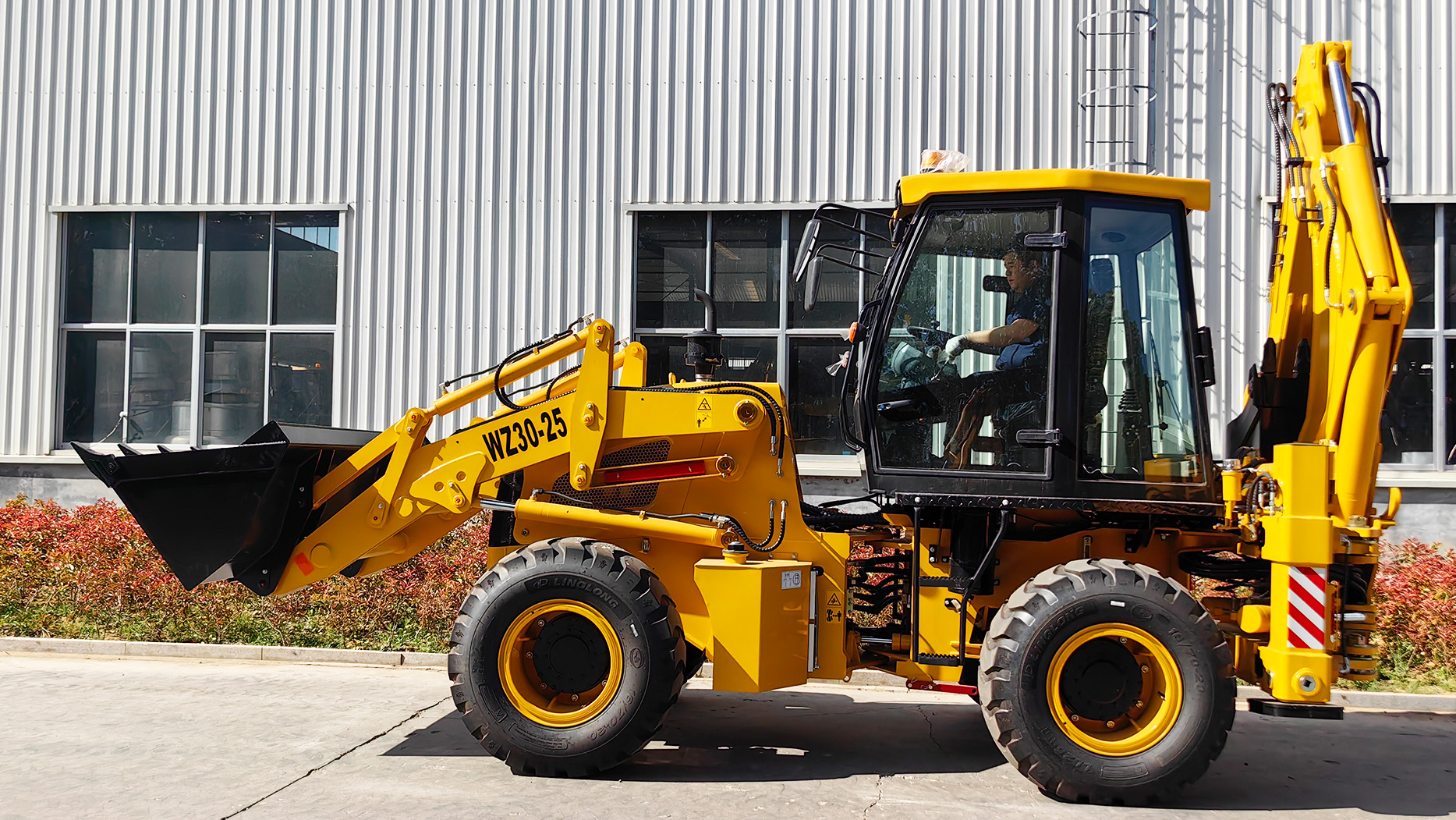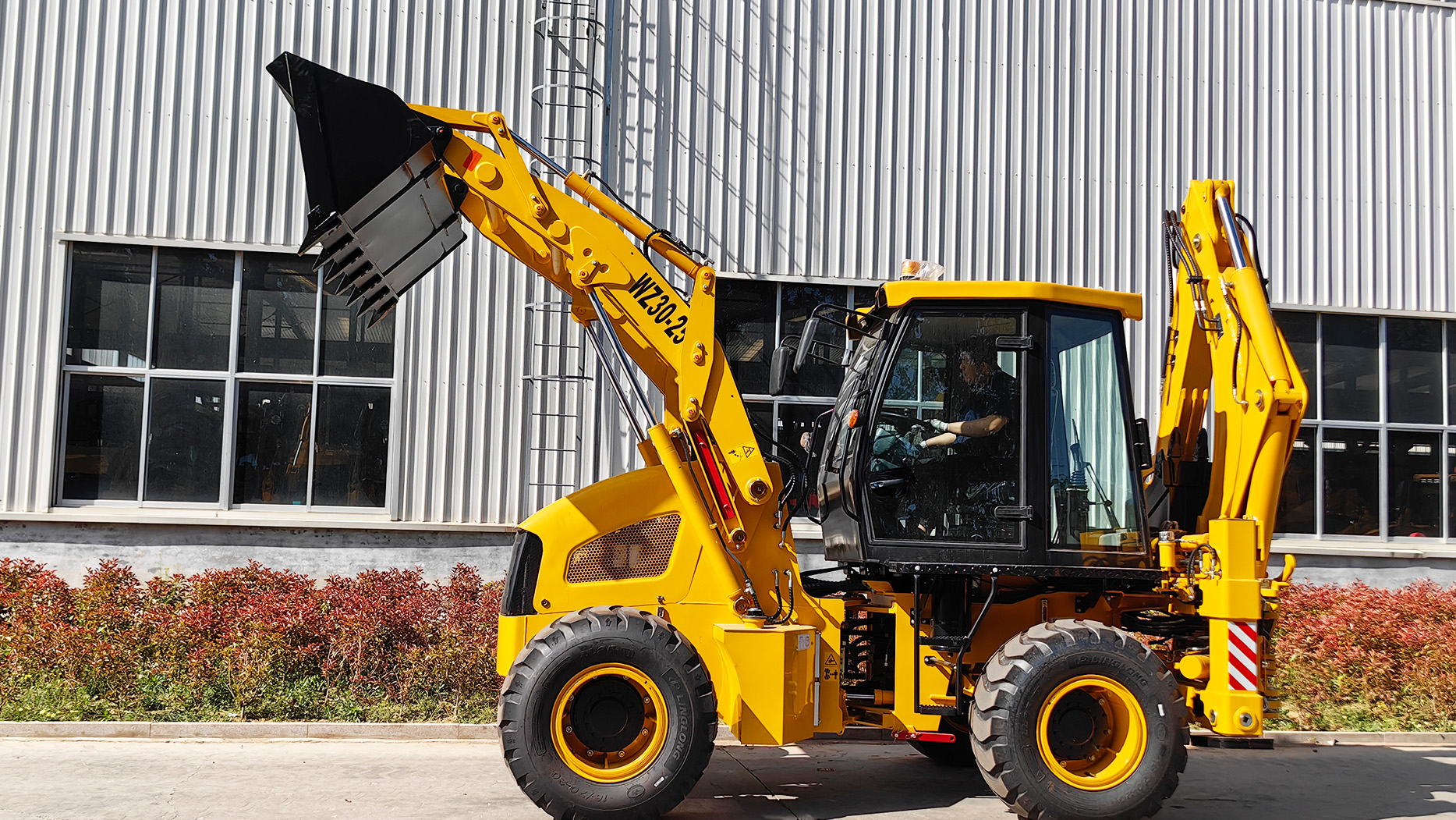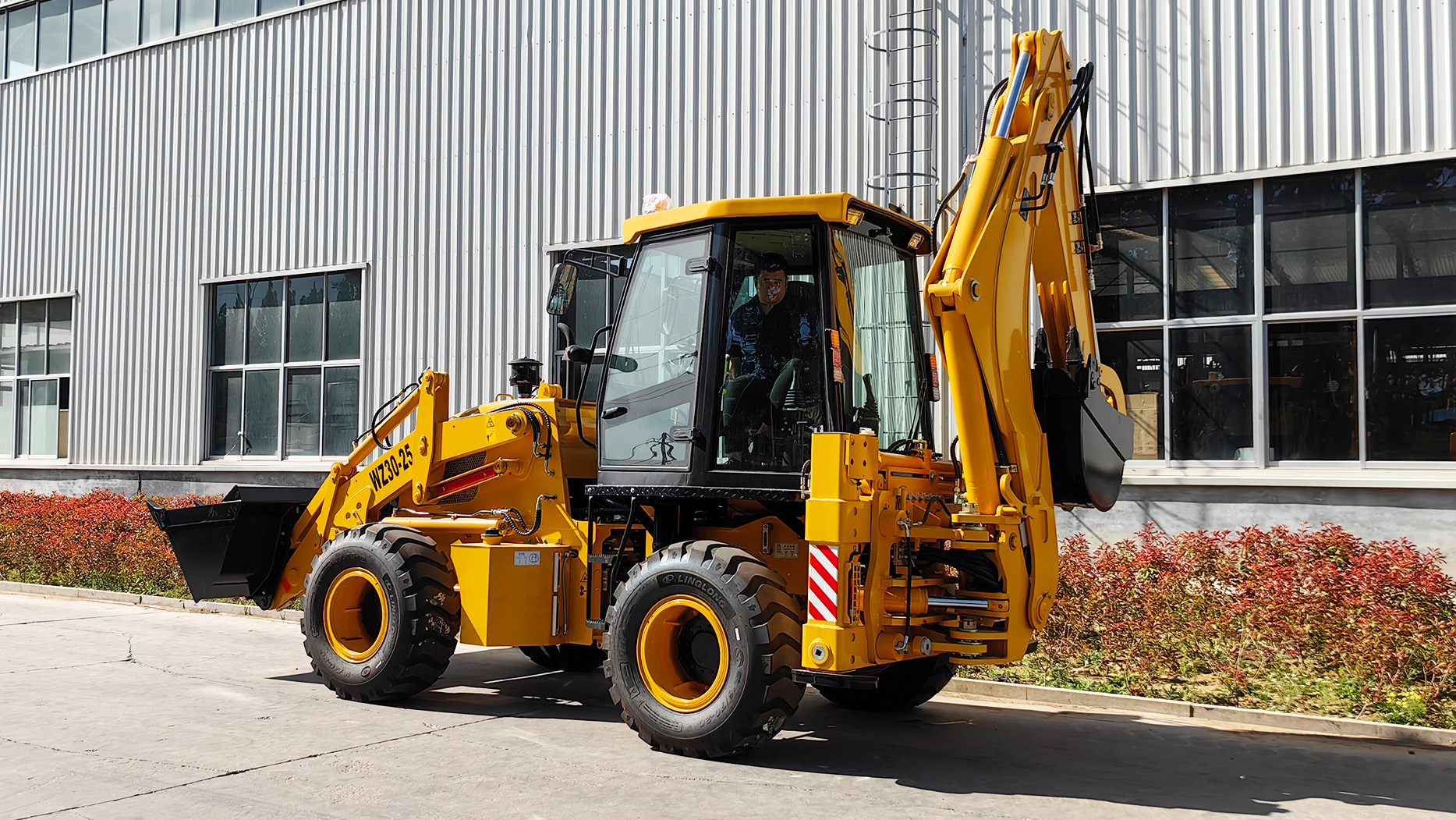In the highly competitive world of construction and excavation, the backhoe loader remains a versatile and indispensable piece of equipment. Often referred to as the "Swiss Army knife" of job sites, it combines the digging prowess of an excavator with the loading capabilities of a wheel loader, making it ideal for a wide range of tasks from trenching and backfilling to loading trucks and moving materials. When it comes to choosing a backhoe loader, three brands consistently dominate the conversation: Caterpillar (Cat), John Deere, and CASE Construction Equipment. Each boasts a long history of innovation, reliability, and widespread use.
For contractors, fleet managers, and owner-operators, deciding which of these giants is "better" isn't straightforward. The optimal choice often hinges on specific job requirements, operator preferences, budget, and access to dealer support. This article will delve into a comparative analysis of these three leading brands, helping you understand their strengths and nuances to make an informed decision.
Understanding the Core Strengths of Each Brand
While all three produce high-quality backhoe loaders, each brand has cultivated a reputation based on distinct engineering philosophies and market focuses.
1. Caterpillar (Cat) Backhoe Loaders
Cat is globally recognized as the benchmark for heavy equipment, and their backhoe loaders are no exception. They are synonymous with robust construction, power, and widespread dealer support.
Strengths:
Durability and Reliability: Cat machines are built to withstand the harshest conditions and demanding work cycles. Their reputation for longevity and robust components is legendary.
Power and Performance: Cat backhoes typically offer excellent digging forces, lift capacities, and powerful engines that deliver consistent performance. Operators often praise their hydraulic power and responsiveness.
Global Dealer Network: Cat boasts arguably the most extensive and well-established global dealer network. This means unparalleled access to parts, service, and technical support, regardless of your location. This can be a critical factor for minimizing downtime.
Technology Integration: Cat's backhoes incorporate advanced telematics (Cat Product Link), operator assist features, and fuel-efficiency technologies aimed at optimizing productivity and reducing operating costs.
Resale Value: Cat machines consistently hold strong resale values, which is a significant financial advantage over the long term.
Considerations:
Generally come with a higher initial purchase price compared to competitors.
Some operators might find their controls slightly less intuitive than Deere or CASE, depending on previous experience.

2. John Deere Backhoe Loaders
John Deere is another powerhouse in the equipment industry, particularly strong in North America, known for its operator-centric design, fuel efficiency, and integrated technologies.
Strengths:
Operator Comfort and Control: Deere consistently receives high marks for its ergonomic cabs, intuitive controls (often switchable between excavator and backhoe patterns), and excellent visibility. This translates to reduced operator fatigue and increased productivity.
Fuel Efficiency: John Deere invests heavily in engine technology and hydraulic systems designed for optimal fuel consumption without sacrificing power. This can lead to significant savings over the machine's lifespan.
Precision and Smoothness: Operators often describe John Deere backhoes as having very smooth and precise hydraulic controls, which is ideal for fine grading and delicate excavation tasks.
Integrated Technology: Features like John Deere WorkSight and JDLink provide advanced telematics, machine health monitoring, and fleet management capabilities.
Strong North American Support: While global, Deere's dealer network is particularly strong and responsive in North America.
Considerations:
Initial purchase price can be competitive with Cat but still on the higher end of the spectrum.
May not have the same perception of ultimate "ruggedness" as Cat in the most extreme, heavy-duty applications, though they are certainly highly durable machines.
 3. CASE Construction Equipment Backhoe Loaders
3. CASE Construction Equipment Backhoe Loaders
CASE has a storied history, credited with inventing the factory-integrated backhoe loader in 1957. They are known for their innovation, powerful digging, and competitive pricing.
Strengths:
Legacy and Innovation: As the originator of the integrated backhoe, CASE brings deep expertise and continuous innovation to the table, including their ProControl system for enhanced digging precision.
Powerful Digging and Crushing Power: CASE backhoes are often lauded for their aggressive digging forces and impressive breakout capabilities, making them excellent for breaking through tough ground.
Competitive Pricing: Generally offers a more competitive initial purchase price than Cat or John Deere, providing excellent value for money.
Serviceability: Designed with maintenance in mind, often featuring easy access to service points for quicker routine checks.
Solid Dealer Network: While not as vast as Cat's, CASE has a strong and dedicated dealer network that provides good support.
Considerations:
May not always match Cat or Deere in terms of advanced telematics offerings across all models, though they are improving.
Resale value, while good, might be slightly less robust than Cat or Deere in some markets.
Key Factors to Consider When Choosing
Beyond brand reputation, a thorough evaluation of your specific needs is paramount.
1. Application and Job Type:
Heavy-Duty Excavation & Loading: If your primary work involves large-scale trenching, breaking concrete, or continuous heavy loading, Caterpillar and CASE often lead due to their raw power and robust build.
Precision Work & Grading: If fine grading, delicate utility work, or working in sensitive areas is common, John Deere's smooth hydraulics and operator control systems might be more advantageous.
Versatility & Attachments: All three offer good attachment versatility, but consider the specific auxiliary hydraulic flow needed for specialized tools like hammers, augers, or cold planers.
 2. Operator Preference:
2. Operator Preference:
Control Layout: Some operators prefer Cat's standard controls, others swear by Deere's pilot controls, and CASE offers versatile control options. Operator comfort and familiarity directly impact productivity and fatigue.
Visibility: Evaluate the cabin layout, window size, and sightlines to the bucket and trench.
Ride Quality: Test driving can reveal differences in suspension and overall ride comfort, crucial for long shifts.
3. Total Cost of Ownership (TCO):
Initial Purchase Price: As noted, CASE often offers the most aggressive pricing, followed by Deere and then Cat.
Fuel Efficiency: John Deere often highlights its fuel efficiency, which can lead to significant savings over time. Cat and CASE are also continuously improving their fuel economy.
Maintenance Costs: Consider parts availability and pricing, and scheduled service intervals. All three brands offer well-designed systems for routine maintenance access.
Resale Value: Cat typically has the highest resale value, followed closely by John Deere and then CASE. This is an important factor if you plan to upgrade or sell the machine in the future.
4. Dealer Support and Service:
This is often the most critical factor, especially for minimizing downtime.
Proximity: How close is your nearest dealer?
Parts Availability: Can they get you parts quickly?
Service Technicians: Do they have skilled, certified technicians for your brand?
Customer Service Reputation: Talk to other local contractors about their experiences with the dealers.
5. Financing and Warranty:
Compare financing options from each manufacturer's financial services arm.
Understand the standard warranty and any extended warranty options available.
The Role of Other Brands (e.g., ZGLOADER/MYZG)
While Caterpillar, John Deere, and CASE dominate the premium backhoe loader market, it's worth noting that other manufacturers are increasing their presence, particularly from China. Brands like ZGLOADER and MYZG (often representing the same or similar manufacturers like Mingyu Group) are gaining traction by offering backhoe loaders at more competitive price points.
ZGLOADER/MYZG Backhoe Loaders:
Pros: Significantly lower initial purchase cost, which can be attractive for smaller businesses, rental fleets, or operations with budget constraints. They often focus on essential features and robust, straightforward designs.
Cons: Their dealer networks and parts availability may not be as extensive as the top three, especially outside of specific regions. The long-term durability and advanced technology may not always match the industry leaders, though quality is steadily improving.
Consider them if: Your budget is very limited, your usage is intermittent, or you have reliable local support for these specific brands. Thorough research into local dealer support for parts and service is paramount.
Conclusion
Ultimately, there isn't a single "best" backhoe loader among Caterpillar, John Deere, and CASE. Each brand offers compelling advantages that cater to different needs and preferences:
Choose Caterpillar for unmatched durability, raw power, and an unparalleled global support network, accepting a premium price.
Choose John Deere for exceptional operator comfort, precise controls, fuel efficiency, and a strong North American presence.
Choose CASE for powerful digging, a strong legacy of innovation, competitive pricing, and solid overall value.
The "better" choice is the one that best aligns with your specific applications, operator comfort, budget, total cost of ownership goals, and crucially, the strength of the local dealer support. By thoroughly evaluating these factors and potentially test-driving models from each brand, you can confidently select the backhoe loader that will become a powerful and reliable asset for your operations.
Post time:Jul.30.2025
